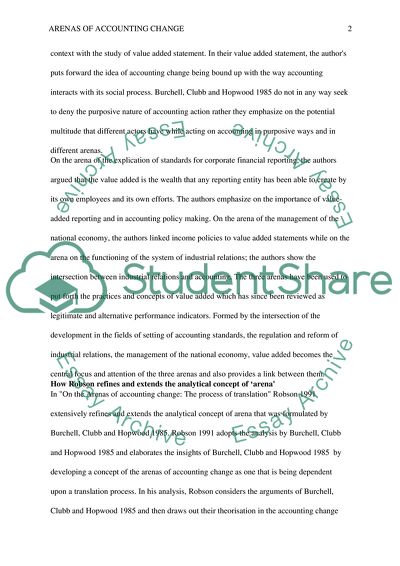Cite this document
(Critically analyse to what extent and how Robson (1991) refines and Essay, n.d.)
Critically analyse to what extent and how Robson (1991) refines and Essay. https://studentshare.org/finance-accounting/1858192-critically-analyse-to-what-extent-and-how-robson-1991-refines-and-extends-the-analytical-concept-of-arena-that-was-formulated-initially-by-burchell-clubb-and-hopwood-1985
Critically analyse to what extent and how Robson (1991) refines and Essay. https://studentshare.org/finance-accounting/1858192-critically-analyse-to-what-extent-and-how-robson-1991-refines-and-extends-the-analytical-concept-of-arena-that-was-formulated-initially-by-burchell-clubb-and-hopwood-1985
(Critically Analyse to What Extent and How Robson (1991) Refines and Essay)
Critically Analyse to What Extent and How Robson (1991) Refines and Essay. https://studentshare.org/finance-accounting/1858192-critically-analyse-to-what-extent-and-how-robson-1991-refines-and-extends-the-analytical-concept-of-arena-that-was-formulated-initially-by-burchell-clubb-and-hopwood-1985.
Critically Analyse to What Extent and How Robson (1991) Refines and Essay. https://studentshare.org/finance-accounting/1858192-critically-analyse-to-what-extent-and-how-robson-1991-refines-and-extends-the-analytical-concept-of-arena-that-was-formulated-initially-by-burchell-clubb-and-hopwood-1985.
“Critically Analyse to What Extent and How Robson (1991) Refines and Essay”. https://studentshare.org/finance-accounting/1858192-critically-analyse-to-what-extent-and-how-robson-1991-refines-and-extends-the-analytical-concept-of-arena-that-was-formulated-initially-by-burchell-clubb-and-hopwood-1985.


